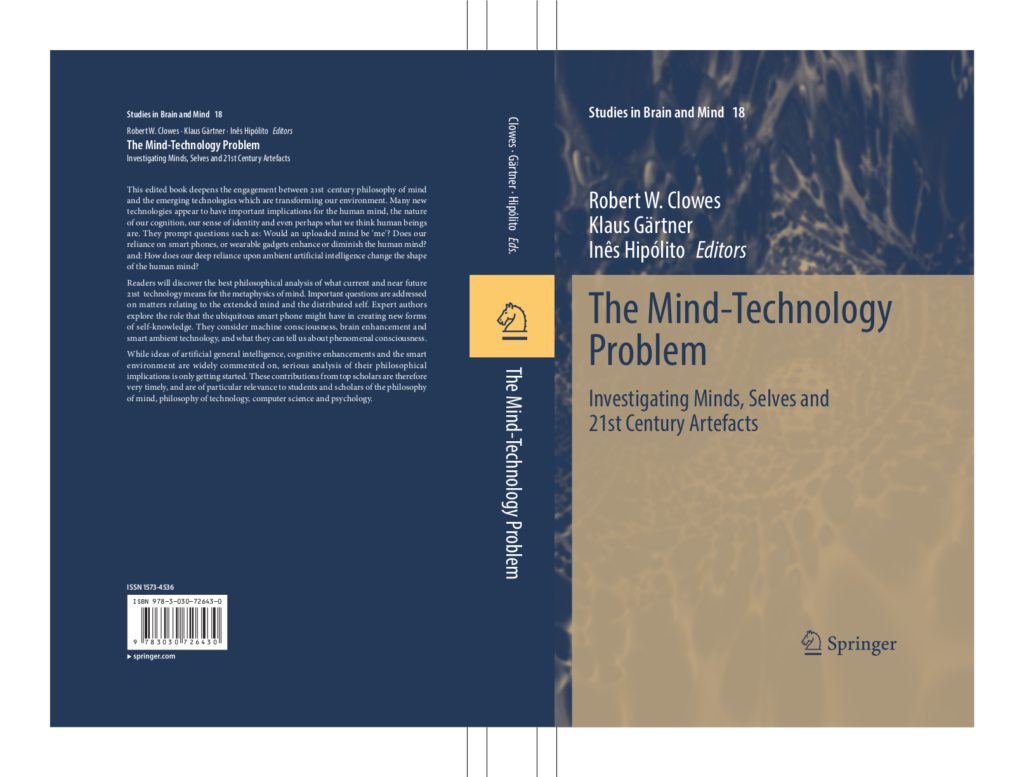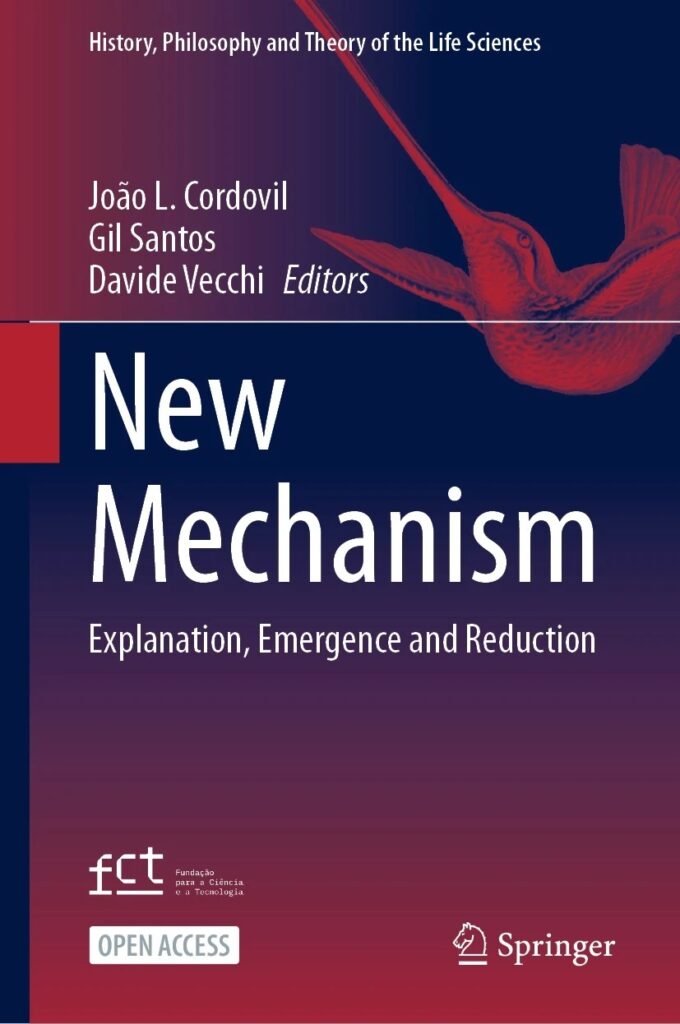EITNS
Details of the project
Emergence in the Natural Sciences is funded by the Fundação para a Ciência e a Tecnologia, and jointly hosted by the Centre of Philosophy and the Centre for Philosophy of Science of the University of Lisbon.
The main purpose of the project is to challenge a fairly standard dilemma in the philosophy of science, viz. mechanistic reduction vs. emergence. According to the former, complex things (both in physics and in the special sciences) are to be understood via a combination of mereological composition and functional realization. Complex things reduce to fundamental physics, in the sense that they are fully composed of fundamental physical particles and their properties are fully realized by those of their components by causal role-filling.
As is by now familiar, this seems to place very strong limitations on how novel complex things get to be in relation to their fundamental components, and many have shared the view that there are certain kinds of novelty (new causal powers, for instance, but perhaps also some kinds of qualitative novelty) that you can only get if you give up on grounding explanations altogether and go for some kind of mysterious brute emergence.
That seems like a false dilemma to me. There are grounding relations available other than mereology + realization, and it’s not at all clear that they are similarly limited in respect of novelty. For instance, Laurie Paul has called for an alternative to standard mereology that doesn’t require spatiotemporal relations among the fundamentals, which offers the promise of explaining how to construct the spatiotemporal from the non-spatiotemporal; and I have argued that non-functionalist accounts of property realization are consistent with new causal powers in the sense typically associated with strong ontological emergence. There’s also scope for arguing that the standard account isn’t as limited as is commonly supposed: for instance, Carl Gillett suggests that functional properties can play a novel role (which he calls ‘machresis’) in determining which powers their realizers below.
Core aims:
- Look at putative cases of emergence in physics, chemistry, biology, and psychology, and examine the sort of novelty (causal, nomic, qualitative…) they seem to involve
- Explore the limits of standard mechanistic accounts of complex entities in the light of these case studies
- Develop alternative grounding models to see if we can get what’s good about emergence without the mystery
We have funds available to arrange several themed workshops over the 3 years of the project, to arrange visiting speakers, and to fund conference travel and accommodation for project team members. We will in addition hold reading groups and work in progress sessions at Lisbon for project team members.
Project Team:
Alastair Wilson
Amanda Bryant
Daniele Molinini
Davide Vecchi
David Yates
Elena Casetta
Gil C. Santos
João Cordovil
Klaus Gärtner
Robert Clowes
Umut Baysan
Selected Publications:
- Baysan, U. (2020). ‘Causal Emergence and Epiphenomenal Emergence’, Erkentnnis 85, pp. 891-804.
- Baysan, U. (2021). ‘Rejecting epiphobia’, Synthese.
- Baysan, U. (2022). ‘Are Propositional Attitudes Mental States?’, Minds and Machines 32, pp. 417–432.
- Baysan, U. (2022). ‘Truthmaker Puzzles for One-level Physicalists’, Synthese 200.
- Bryant, A. (2020). ‘Physicalism’, in Routledge Handbook of Metaphysical Grounding. Ed. Michael Raven, pp. 484-500.
- Bryant, A. (2020). ‘Naturalisms’, Think. 19:56. 35-50.
- Bryant, A. (2021). ‘Epistemic Infrastructure for a Scientific Metaphysics’, Grazer Philosophische Studien 98, pp. 27-49.
- Bryant, A. (2022). ‘Grounding Interventionism’, Metaphilosophy. 53, pp. 322-343.
- Bryant, A. (2022). ‘The Supposed Spectre of Scientism’, In Moti Mizrahi (ed.), For and Against Scientism: Science, Methodology, and the Future of Philosophy. Rowman and Littlefield. pp. 47-74.
- Casetta, E. (2019). ‘Preformationism vs. Epigenesis: inspiration and haunting within and outside contemporary philosophy of biology’, Rivista di Estetica 74: 119-139.
- Clowes, R., Gaertner, K. & Hipolito, I. (eds.) (2021). The Mind-Technology Problem – Investigating Minds, Selves and 21st Century Artifacts, Springer 2021.
- Clowes, R., Gaertner, K. & Hipolito, I. (2021). ‘The mind-technology problem and the deep history of mind design’, in The Mind-Technology Problem – Investigating Minds, Selves and 21st Century Artifacts, Springer.
- Clowes, R (with M. Milkowski, Z. Rucińska; et al.) (2018). ‘From Wide Cognition to Mechanisms: a Silent Revolution’, Frontiers in Psychology 9, pp. 1-17.
- Clowes, R. & Andrada, G. (2022). ‘Situating Mental Depth’, Avant XIII.
- Cordovil, J. Santos, G. and Symons, J. (2022). ‘Reconciling Ontic Structural Realism and Ontological Emergence’, Foundations of Science.
- Gärtner, K. (2022). ‘Why Cyborgs necessarily feel’. In: Dismantling Anthropocene. Beyond Binary Categorizations, Monika Michałowska (ed.), Technoetic Arts, Vol 20:1-2, pp. 51-64.
- Molinini, D. (2019). ‘Intended and Unintended Mathematics: The Case of the Lagrange Multipliers’, Journal for General Philosophy of Science 51, pp. 93-113.
- Santos, G. & Santos, R. (2018). ‘Uma Teoria Relacional da Emergência: O Caso Exemplar da Endossimbiose’, in R. Santos, R. Melo, G. Santos (eds.). Origem Endossimbiótica das Células Eucarióticas: Fundamentos e Perspectivas, CFCUL & MARE, pp.123-184.
- Santos, G. (2020). ‘Integrated structure emergence and its mechanistic explanation’, Synthese.
- Santos, G. (2021). ‘Emergentism’, in The Palgrave Encyclopedia of the Possible. Palgrave Macmillan.
- Santos, G. Vallejos, G & Vecchi, D. 2020. ‘A relational‐constructionist account of protein macrostructure and function’, Foundations of Chemistry 22, pp. 363-382.
- Vecchi, D. (2019). ‘Organismality grounds species collective responsibility’, in Rivista di Estetica 75, pp. 52-71.
- Vecchi, D. (with I. Hernandez). (2019). ‘The interactive construction of biological individuality through biotic entrenchment’, Frontiers in Psychology. 10:02578
- Vecchi, D. (2020). ‘DNA is not an Ontologically Distinctive Developmental Cause’, Studies in History and Philosophy of Biological and Biomedical Sciences, 81.
- Wilson, A. (2021). ‘Counterpossible Reasoning in Physics’, Philosophy of Science 88, pp. 1113-1124.
- Yates, D. (2020). ‘Neural Synchrony and the Causal Efficacy of Consciousness’, Topoi 39 (5), pp. 1057-1072.
- Yates, D. (2020). ‘A Strange Kind of Power: Vetter on the Formal Adequacy of Dispositionalism’, Philosophical Inquiries 8, pp. 97-116.
- Yates, D. (2021) ‘Thinking about Spacetime’, in Wüthrich, Le Bihan & Huggett (eds.) Philosophy Beyond Spacetime. Oxford University Press, pp. 129-153.
- Yates, D. (2024). ‘From Multilevel Explanation to Downward Causation’, in Alastair Wilson & Katie Robertson (eds.) Levels of Explanation. Oxford University Press, forthcoming 2024.
- Yates, D. (2024). ‘Hylomorphism, or Something Near Enough’, in David Yates & Amanda Bryant (eds.) Rethinking Emergence. Oxford University Press, forthcoming 2024.
Edited Volumes:
Yates, D. & Bryant, A. (eds.) Rethinking Emergence. Oxford University Press, forthcoming 2024.
Cordovil, J. Santos, G. and Vecchi, D. (eds.) (2024). New Mechanism: Explanation, Emergence, and Reduction. Springer. OPEN ACCESS!
Clowes, R., Gaertner, K. & Hipólito, I. (eds.) (2021). The Mind-Technology Problem: Investigating Minds, Selves and 21st Century Artifacts. Springer.
Please contact me if you are interested in collaborating or for details of forthcoming works.



